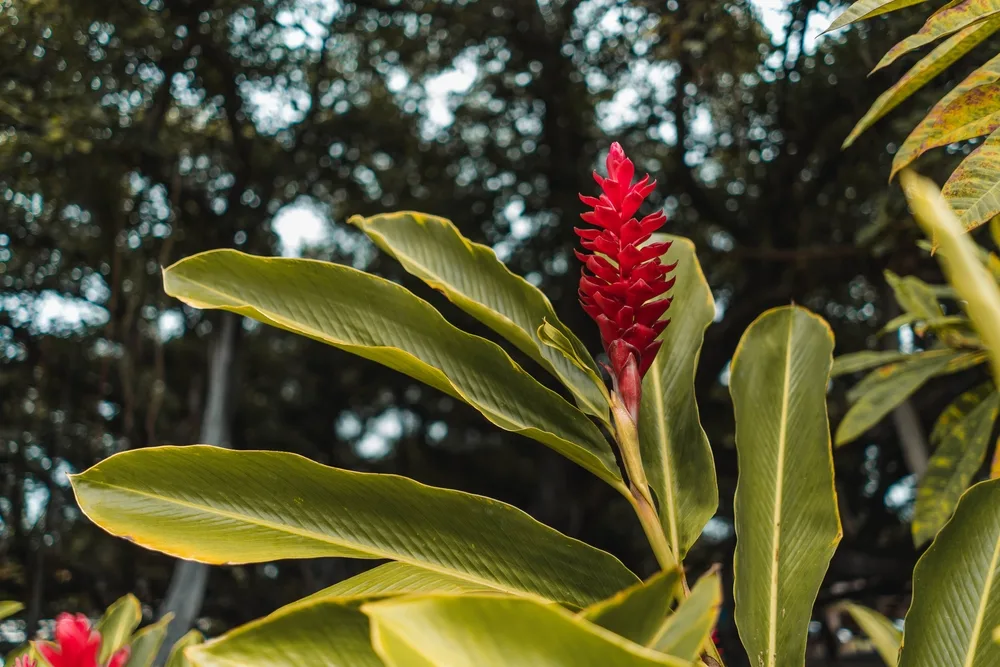Jump to:
It’s hard not to have certain preconceptions about the word ginger when used to refer to redheads. They have spirit and maybe a temper. For that reason, many redheads object to being called ‘ginger.’
But given that one of literature’s best-known gingers was famously called ‘Carrots’ and resented it, where did the term come from? And why are redheads called gingers?
Why Are Redheads Called Gingers?
Not everyone agrees on why redheads are called gingers, and the result is that there are many competing theories.
- One attributes the moniker to the coloration of ginger root or the ginger plant.
- Another is that it became popular courtesy of the TV show ‘Gilligan’s Island.’
- Others point to heroine Anne Shirley’s outrage at being called ‘Carrots’ and say redheads are called gingers.
It’s not because their hair is a similar color to any one plant or root, but rather because they share its innate fiery nature. Below, we’ll take a more in-depth look at why we call redheads gingers.
1. Ginger Root

Philipphoto/Shutterstock
One answer to ‘why are redheads called gingers’ has to do with the ginger root. The supposition is that the term came into use because of the color similarity between redheads and this spice.
But the ginger root isn’t particularly eye-catching. Truth be told, neither are most redheads. The particular carrot-orange hair color that L. M. Montgomery immortalized isn’t a color possessed by all redheads.
There are as many shades of ginger as there are redheads out there. And because of how you produce melanin, the intensity of the red can change over time.
That said, one of the other ubiquitous stereotypes about gingers is their notorious tempers or not. Irrespective of whether this is true, there’s an undeniable kick to ginger root, which may explain why we call redheads gingers.
2. Red Ginger Plant

Wirestock Creators/Shutterstock
The term ‘ginger’ to describe redheads started becoming prominent around the mid-to-late 18th century. Simultaneously, Britain colonized places like Malaysia, where the red ginger plant flourished.
It’s undeniably striking in much the same way red hair can be.
And it’s incontrovertibly red. The then-contemporary fascination with exoticism would make it natural to borrow from the red ginger plant and apply the term to the perceived equally exotic redheads.
3. Gilligan’s Island Fame
Another possible explanation for why redheads are called gingers comes from the show ‘Gilligan’s Island.’ It featured Ginger Grant, a character with fiery hair and pale skin associated with gingers.
There’s a long tradition of TV shows reinventing the linguistic wheel, especially popular ones. And sixties TV sensation ‘Gilligan’s Island’ makes that cut.
Consequently, it’s believed that Ginger Grant’s characterization helped popularize the use of ‘ginger’ to describe redheads, especially in North America. It helped that Ginger Grant was an extremely popular character.
Redheads today may not care for the image it conjures, but it’s undeniable that, at the time, there was nothing wrong with looking like Ginger Grant.
4. Flavor and Baked Goods

Brent Hofacker/Shutterstock
We talked a bit about how the flavor of the ginger spice informed the popular use of ‘ginger’ to describe redheads. Another theory behind the question ‘Why are redheads called ginger’ has to do with baking.
Much like with ginger root, there’s a strong associative link between redheads and all things fiery. But the use of ‘ginger’ may also derive from the color of baked goods featuring ginger.
Think of the way ginger molasses cookies or spice cakes come out of the oven. They aren’t vivid orange, but they’re the muted gingery color common to many redheads.
It’s possible that the color of these ginger-based culinary niceties informed how we describe redheads. That said, the term ‘ginger’ has a surprisingly long history.
The History of Gingers and Redheads
Redheads appear in literature as early as Ancient Greece, where writer Xenophanes describes the red-haired and blue-eyed Thracians as made in the image of their gods. Of course, Xenophanes called them ‘Rufus,’ which means red.
And whereas today, calling someone ginger can be derogatory, Homer and his contemporaries attributed red hair to some of their most beautiful women, like Helen of Troy and Aphrodite.
Of course, they also thought redheads were vampiric by nature, so the history of believing redheads or gingers were innately malevolent is older than we might like. Not only that, but red hair quickly developed associations with witchcraft.
Partly that’s because Mary Magdalene was frequently depicted with red hair. While the Bible doesn’t name her as a prostitute, many homegrown theologians associate Mary with the unnamed prostitute who washes the feet of Christ.
Combined with predecessors like Venus, who stood for all things sensual, the Church’s supposition that she was a witch out to corrupt the faithful was inevitable. But the Early Modern distrust of gingers had less to do with women and more with the belief that Judas Iscariot was ginger.
All of this meant that by the time ‘ginger’ settled into the modern vocabulary, it had definite derisive connotations. Carrots almost sound complimentary by comparison. At least no one associates root vegetables with heresy.
Frequently Asked Questions

Mix and Match Studio/Shutterstock
So, that’s why redheads are called gingers. Here are some other related questions people frequently ask about redheads and their history.
Is calling someone ginger rude?
While the term ‘ginger’ didn’t start as an overtly offensive term, some people find it offensive. Much of that has to do with the stereotypes that we now associate with red hair.
But it varies from person to person. Other people have no strong opinions about being called ginger. While still others self-identify as ginger.
For that reason, it’s best to only use ginger to describe someone if you know the person on the receiving end won’t mind. Interestingly, dictionaries acknowledge the inherent derisiveness of ‘ginger.’
Are the terms redhead and ginger interchangeable?
It’s common for people to use ginger and redhead synonymously. But when you get down to the brass tacks of it, you often find people distinguish between the two. Typically, redheads are associated with vibrantly red hair of the ‘carrots’ variety.
Whereas gingers get associated with the more muted coppery reds and red-brown shades of red hair. Another distinction is that redheads also inherit pale skin and freckles, a combination most pronounced in places like Britain.
Equally, some people use redhead to refer to people who dye their hair red and associate ginger hair with natural color. All of these distinctions can feel a bit contradictory, so it’s no wonder that for most of us, ginger and redhead are synonyms.
Why do Australians call redheads ‘bluey?’
Ginger might sound derogatory to some, but ‘Bluey’ is undeniably odd. The Australian propensity to refer to their redheads as ‘bluey’ goes back to the 1890s.
The term was affectionately coined for Imperial Forces soldiers from New South Wales. Theories abound as to why ‘Bluey’ became associated with redheads, but the prevailing one is that it’s a tongue-in-cheek reference to how red contrasts with blue.
Whatever the origin, the name stuck, and by World War Two it was in common use. That said, it’s an example of Australian slang that’s since fallen out of use, and you are less likely to hear it used these days.
So, Why Are Redheads Called Gingers?
Why are redheads called gingers? No one is completely sure. Possible solutions range from baking and botany to beloved characters on ‘Gilligan’s Island.’
Whatever the reason, it’s a word with complicated associations. Unless you know the ginger in question doesn’t object to the term, it may be safer to describe them as a redhead.
